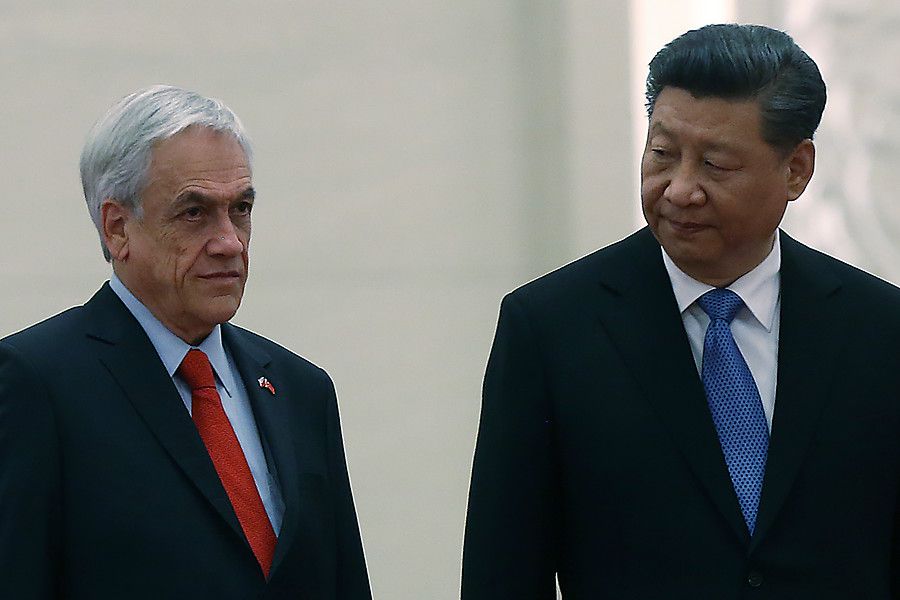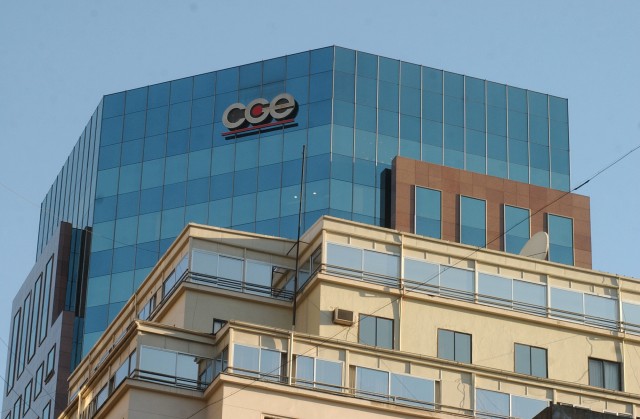RIO DE JANEIRO, BRAZIL – With the acquisition of CGE, Chile’s main electrical power provider, the Chinese regime will control over half of the country’s electrical distribution from Beijing, which has raised concern in different sectors.
In April 2019, Chilean President Sebastián Piñera visited China just days after leading a repudiation demonstration against Nicolás Maduro on the Venezuelan-Colombian border, alongside his Colombian counterpart, Iván Duque, and in the presence of Juan Guaidó. After this, and while he toured Asia, he was asked about his opinion of China, a country with a communist regime.
In this respect, Piñera answered: “We have had diplomatic relations with China for 50 years. Everyone has their own political system. What is important in this case is that we are working together with pragmatism, to seek paths and cooperation between China and Chile that will benefit both peoples,” he said.

In the Chilean media, and in several sectors, the President’s answer was regarded as a contradiction. However, the same president argued his opinion. “Chile has not only diplomatic relations, but also relations of friendship with all of the world’s countries, and we have them with the United States, we have them with Europe and we also have them with China,” he remarked.
At that time, Piñera said that the meeting “with the main public authorities of the Chinese Government, and with the main Chinese entrepreneurs and innovators, is something that is good for my country, that is good for Chileans, and that is why we are here”.
At that same time, Sebastián Piñera, who traveled along with several entrepreneurs and even with his children, something for which he was harshly criticized in Chile, also had a meeting with his Chinese counterpart, Xi Jinping.
Together, they signed an agreement on a strategic plan for 2019-2022, which includes working on 14 initiatives in areas such as economy and trade, transports, politics, science and technology, innovation, agriculture, and telecommunications. In addition, an agreement was signed on trade defense and a protocol for the export of pears from Chile to China.
This serves to contextualize the promising relationship that the Andean country has with the Chinese regime. From a trade perspective, this has become particularly evident in the past two years, in which China has become one of the largest foreign investment partners.
An achievement for the Piñera administration, which confirms an office attached to the Chilean Government established to promote trade relations with the Asian country: China Desk Invest Chile. This was confirmed to the newspaper La Tercera by Alicia Zhu, an investment promotion executive from the same department.
“Despite the pandemic, five new projects from China have been incorporated into our portfolio, totaling 27 initiatives worth US$4.47 billion (R$22.4 billion) by the end of the first half of 2020,” he explained.
The latest and one of the most significant announcements for the Chilean economy is the sale of CGE, Chile’s largest electricity distribution company, to the Chinese state-owned company State Grid International Development Limited (SGIDL). Under the agreement, China would position itself in a market considered strategic in Chile, something that has aroused criticism from different political sectors.
Rodrigo Galilea, the official senator of the Renovación Nacional (RN – National Renewal party), declared that “it is completely unwise for a state company, from any country, to be the owner of Chilean companies that are state-regulated monopolies, and when the other party is a state-owned company, it does not cost anything for the country to send its ambassador asking for better tariff conditions”, he declared.
With this last incursion of the SGIDL in Chile in the electrical sector, it has acquired a total of 96% of the largest energy distribution company, and now controls 52% of the national electrical commercialization in the general distribution segment and 57% in domestic distribution.
In recent years, the Chinese state-owned company has already acquired a large part of the country’s electrical power companies in their different segments: in generation with Pacific Hydro, in transmission with Transelec, and in distribution with Chilquinta, the latter acquired in late 2019 for US$2 billion.
As a result of this aggressive monopolization of companies in the same sector, CGE’s purchase will be forced to overcome the obstacles imposed by the rules of the National Economic Prosecutor’s Office and the Court of Free Competition. But the Chilean authorities are confident that they will be able to finalize the purchase by February 2021.

The Piñera Government’s Minister of Energy Juan Carlos Jobet stated regarding this purchase: “it is a clear and new sign that investors are positive about the modernization of the energy sector and that they trust in our country’s institutionality and rules of the game”.
And it seems to be a widespread position. Foreign Minister Andrés Allamand reacted to the critics of China’s commercial advance in Chile by pointing out that this is a natural consequence of the good relations that have been maintained with the Asians for 50 years.
“Chile has long-term state policies where we have always reiterated our commitment to an open and non-discriminatory economy. There are countries that effectively limit foreign investment in certain areas. In any case, we are attentive to the regulations and reasons followed by other countries in this respect. (…) “In this specific investment case (electricity) we must consider that it is a highly regulated sector, where each company operates only in its concession area. The State sets the rates and monitors very carefully that all regulations are complied with,” he said.
For his part, Minister of Economy Lucas Palacios appeals to trust in the “solid” institutions in charge of regulating the markets in his country”. “Chile has extremely robust legislation and institutions, with rules that apply to both local and foreign companies. This legal framework ensures the proper development of the different economic activities, which are subject to our regulations in defense of our country’s interests,” Lucas Palacios said.
Senator Galilea mentions in his warning that Australia has clashed with China over commercial issues, that the United Kingdom decided not to include Huawei in the implementation of its 5G network, a decision that also assesses Brazil as one of the main destination countries for Asian investment, and that the United States limited the expansion of Tik Tok in its territory, among others.
A tool to restrict access of foreign states and capital in certain activities is in place in several countries such as the United States, Australia, and New Zealand, but not in Chile, as it is conceptually an open economy.
However, some government officials have conceded that Chile is studying the possibility of implementing some kind of specific filter for future commercial operations, particularly those aimed at controlling strategic companies such as electricity distribution.
Source: infobae

